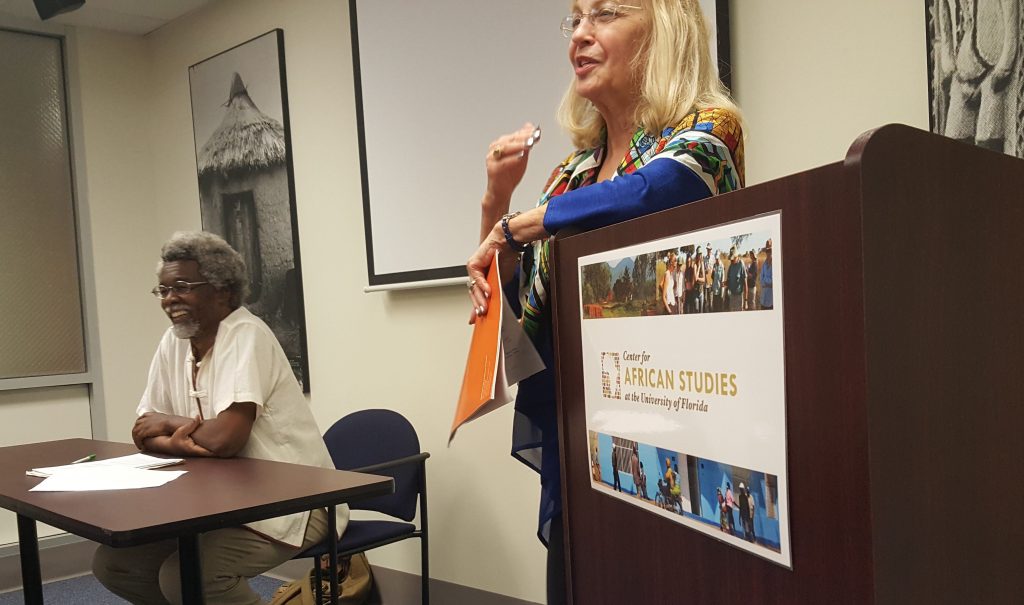On Friday November 4th, Carlton Jama Adams gave a Baraza talk titled, “Adaptive Ambivalence: African Workers in China and the Struggle for Recognition and Agency.” Dr. Adams is Chair and Associate Professor of the John Jay College of Criminal Justice at The City University of New York (CUNY). He is trained in Psychology and the talk focused on the experiences of peoples of African descent living and working in China.
Utilizing themes of suzhi (good, as in proper character or behavior) and eating bitterness (bad, as in enduring and/or overcoming hardships), Dr. Adams traces where migrants come from/how they come to be in China, different experiences of individuals of African descent from different parts of the globe, and immigrants and foreign workers’ relationships with China juxtaposed to their ‘home’ countries. He analyzes the multiple layers of different groups or classes of workers’ experiences. For instance, racism against people of color in China is related to individuals’ region-of-origin and English speaking skills, with black Americans less denigrated as compared to Afro-Caribbeans or sub-Saharan Africans. In general, there is a heightened sense of the way one presents themselves. Still, in comparison to the US, race is presented as a more approachable trait that can be overcome in personal interactions.
Outside of region-of-origin, there is also a difference in experiences between immigrants and foreign workers, with the latter being workers who, with increasing likelihood, will not be allowed to live in China permanently. Receiving the Chinese version of a green card is increasingly uncommon and it is very difficult to become a citizen if you are not born of a Chinese parent and do not have a Chinese name. From a psychological or perhaps even a sociological point of view, Dr. Adams eloquently presents the psychological effects of being an immigrant in China, including the often melancholy conception of ‘home’ and internal debates about which life (i.e. in China versus a ‘home’ country) would be better. Finally, as the social safety net falls back in China (as it has done in the US but without the space for NGO watchdogs and public protests) individuals in China are collectively ‘eating bitterness’ but migrants of African descent are particularly vulnerable given their other status.
